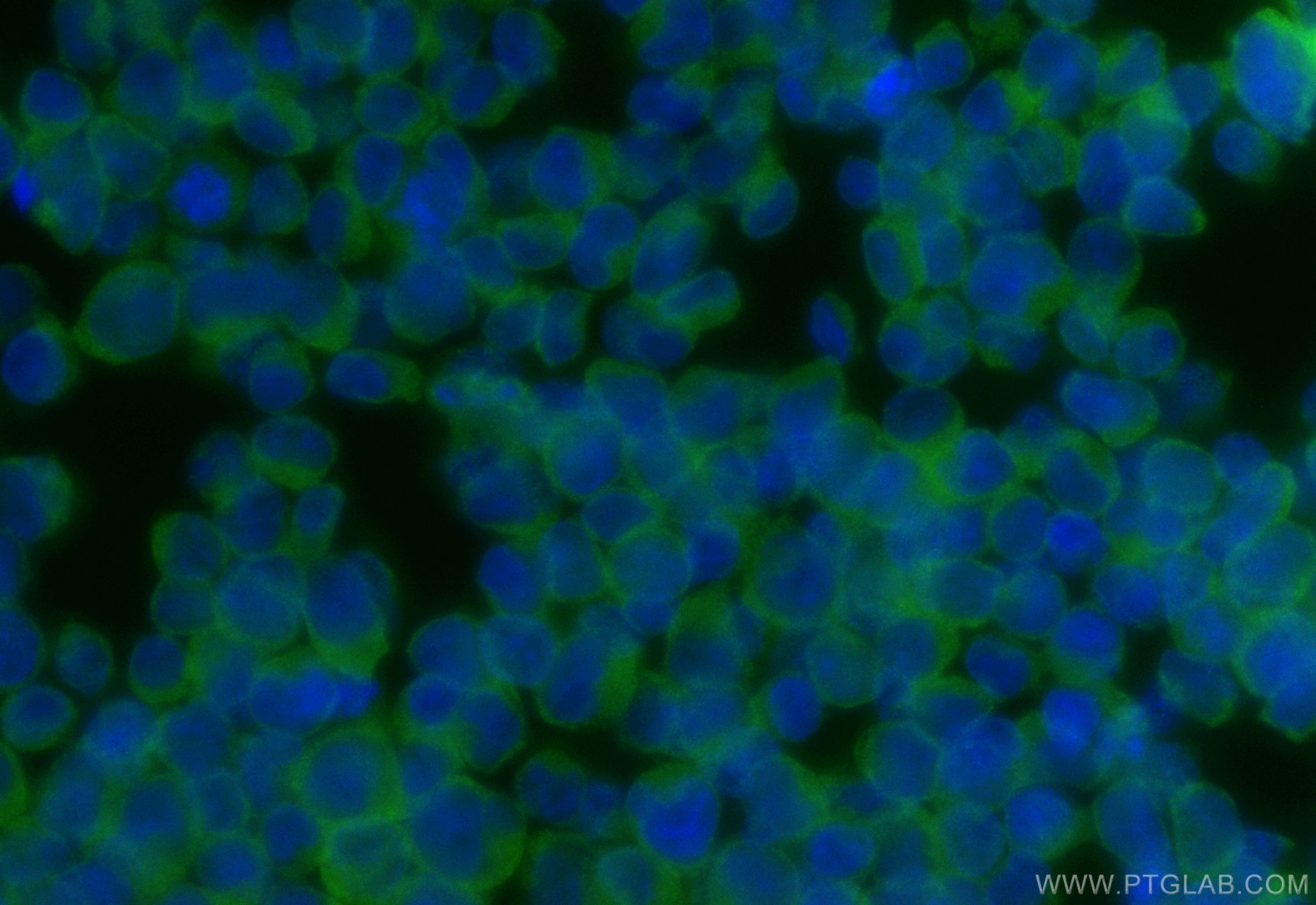Tested Applications
| Positive IF/ICC detected in | Jurkat cells |
Recommended dilution
| Application | Dilution |
|---|---|
| Immunofluorescence (IF)/ICC | IF/ICC : 1:50-1:500 |
| It is recommended that this reagent should be titrated in each testing system to obtain optimal results. | |
| Sample-dependent, Check data in validation data gallery. | |
Product Information
CL488-84312-5 targets MCTS1 in applications and shows reactivity with human, mouse samples.
| Tested Reactivity | human, mouse |
| Host / Isotype | Rabbit / IgG |
| Class | Recombinant |
| Type | Antibody |
| Immunogen | MCTS1 fusion protein Ag6968 Predict reactive species |
| Full Name | malignant T cell amplified sequence 1 |
| Calculated Molecular Weight | 21 kDa |
| GenBank Accession Number | BC001013 |
| Gene Symbol | MCTS1 |
| Gene ID (NCBI) | 28985 |
| Conjugate | CoraLite® Plus 488 Fluorescent Dye |
| Excitation/Emission Maxima Wavelengths | 493 nm / 522 nm |
| Form | Liquid |
| Purification Method | Protein A purification |
| UNIPROT ID | Q9ULC4 |
| Storage Buffer | PBS with 50% Glycerol, 0.05% Proclin300, 0.5% BSA, pH 7.3. |
| Storage Conditions | Store at -20°C. Avoid exposure to light. Stable for one year after shipment. Aliquoting is unnecessary for -20oC storage. |
Background Information
MCTS1 is an anti-oncogene that plays a role in cell cycle regulation. It can reduce cell doubling time and anchor-dependent growth. The G1 transition time and the duration of the G1 / S transition are shortened. It can also promote the release of deacylated tRNA and mRNA from recycled 40S subunits following ABCE1-mediated dissociation of post-termination ribosomal complexes into subunits (PMID: 10440924).
Protocols
| Product Specific Protocols | |
|---|---|
| IF protocol for CL Plus 488 MCTS1 antibody CL488-84312-5 | Download protocol |
| Standard Protocols | |
|---|---|
| Click here to view our Standard Protocols |



